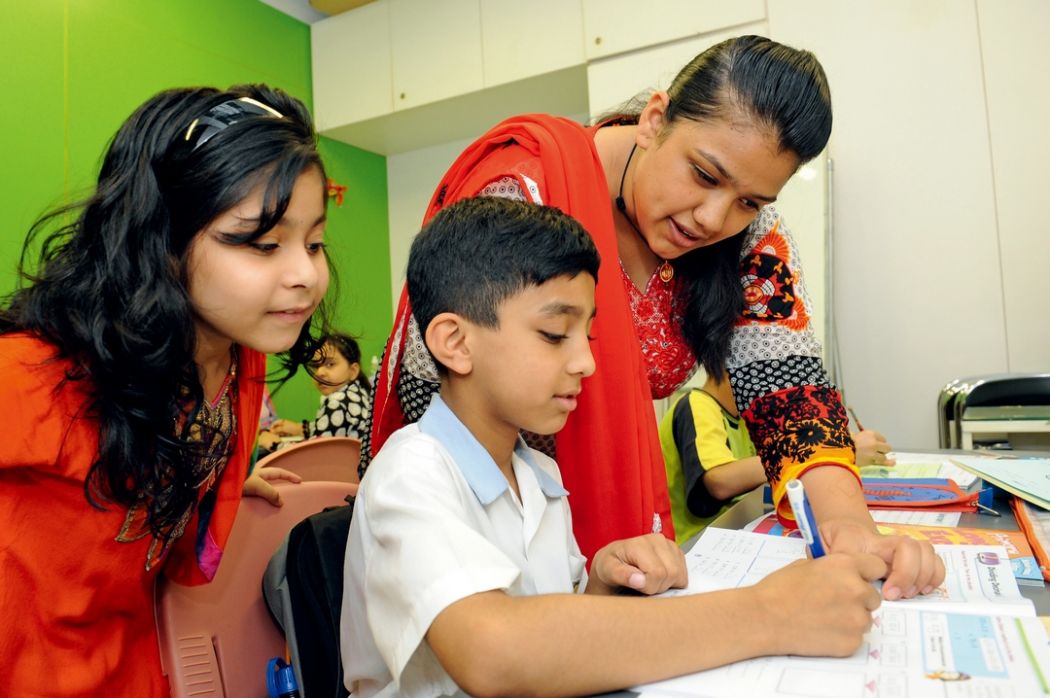By Manoj Dhar
The findings of a recent poll included some alarming statistics: three in five teachers were not confident in teaching Chinese to ethnic minority students; 93 per cent of primary school principals had difficulty in finding staff qualified to teach Chinese as a second language; only about 38 per cent of teachers said they were confident in teaching the Chinese-language subject to non-Chinese-speakers; more than 85 per cent also said they had “greater difficulties” in ensuring non-Chinese-speaking pupils kept up with the mainstream curriculum.
This yet again states the well documented and reported fact that the Chinese language education being imparted to Hong Kong’s marginalised non-Chinese speaking children is less than ideal; it is also worrisome that, despite many discussions, these children continue to struggle.
The news that ethnic or racial background is often cited as the cause of the educators’ inability to impart education to children is equally disheartening. Surely, in a mature and developed society, Hong Kongers should realise that this discriminatory mindset is unhelpful and merely leads to the social exclusion and alienation of fellow citizens.

That fact that the University of Hong Kong scholars and Oxfam researchers (who conducted the survey) have asked the government to further increase funding for this specific purpose, is intriguing.
As is common knowledge, since the 2014/15 school year, the Education Bureau has significantly increased the additional funding available to schools to facilitate schools’ Chinese language teaching to NCS students to about HK$200 million a year. Schools admitting ten or more NCS students are provided with additional funding ranging from HK$0.8 million to HK$1.5 million per annum depending on the number of NCS students admitted.
Interestingly and unfortunately this research has absolutely no mention at all of the predicament from the perspective of the affected children or their parents

Teaching, the noblest of professions, entrusts educators with the responsibility and moral obligation to impart education to all, regardless of race, ethnicity and social background. The emphasis on money demeans the profession and trivialises the deeper root cause. Perhaps a more logical and scientific research methodology would be to find answers to questions such as:
- How and why are the well-funded and subsidised educational institutions and educators asking for even more funding?
- While the generous HKSAR government has acceded to their demands and created the annual $200 million kitty, why then is there a demand for more such extra funding?
- What tangible improvements (in the Chinese language proficiency and academic results of marginalised NCS students) have the schools which have benefitted from this largesse shown since 2014/15 ?
- Is money the key criterion for such schools and teachers to fulfil their basic moral duty to provide education for all, to create an inclusive environment, to educate and enlighten minds, to integrate all regardless of any preconceived prejudices and biases?
The research clearly shows that educators and schools admit their inability to educate non Chinese children at par with Chinese children. Would they then, on moral, ethical and professional grounds, consider taking a cut in their salaries and funding?
The article also quoted a stakeholder’s advice that more non-Chinese-speaking children should attend local kindergartens, as most principals said that the pupils who had not done this encountered the greatest difficulty in adapting to the mainstream curriculum.
Again, it is a very well-reported and documented fact that parents do attempt to enrol their children in mainstream Chinese kindergartens, but are usually turned away for a variety of reasons, none of which have anything to do with academics or education.
Yet again, the onus and responsibility of being welcoming and inclusive lies with the educational institutions and educators, not with 4- or 5-year-old innocent and hapless children. The empowered must take ownership of their moral and professional responsibilities.
A simple solution lies in future teachers trying to make themselves wholesome and holistic educators. This can easily be achieved if they gain experience of teaching NCS children while they are still studying to be teachers. It is merely a matter of imbibing the qualities of compassion, and patience for all children – regardless of their social and racial backgrounds.

It is about the principle of raising the bar as educators and taking ownership for helping all young people to seamlessly integrate into the social fabric of Hong Kong. It is about educators and educational institutions taking pride in their professional commitments and taking ownership of their duty to all students regardless of race and ethnicity.
To cite lack of funding or some children’s inability to grasp a language, or to suggest that some children require special pedagogy, is unfair and harsh to these children. Unfortunately, such narratives have been used repeatedly over the years to brand these children.
On a related note, there is also the oft-reported lament of how Hong Kong’s English standards are deteriorating and that the English of most university graduates is very poor. Interestingly, for this academic challenge facing Hong Kong’s majority population, one does not hear of demands for extra and special funding to schools, or for that matter the suggestion that the ethnic majority has a mysterious inability to grasp the language, or the lament that the teaching methods for Chinese-speaking students and non-Chinese-speaking ones should be different.
The best medicine for all such problems is committed and passionate educators. Only they can inspire and engage a child and a student – regardless of any socio-economic factors.
As Eldridge Cleaver put it – you either have to be part of the solution, or you are going to be part of the problem.
Manoj Dhar is the co-founder & CEO of Integrated Brilliant Education
